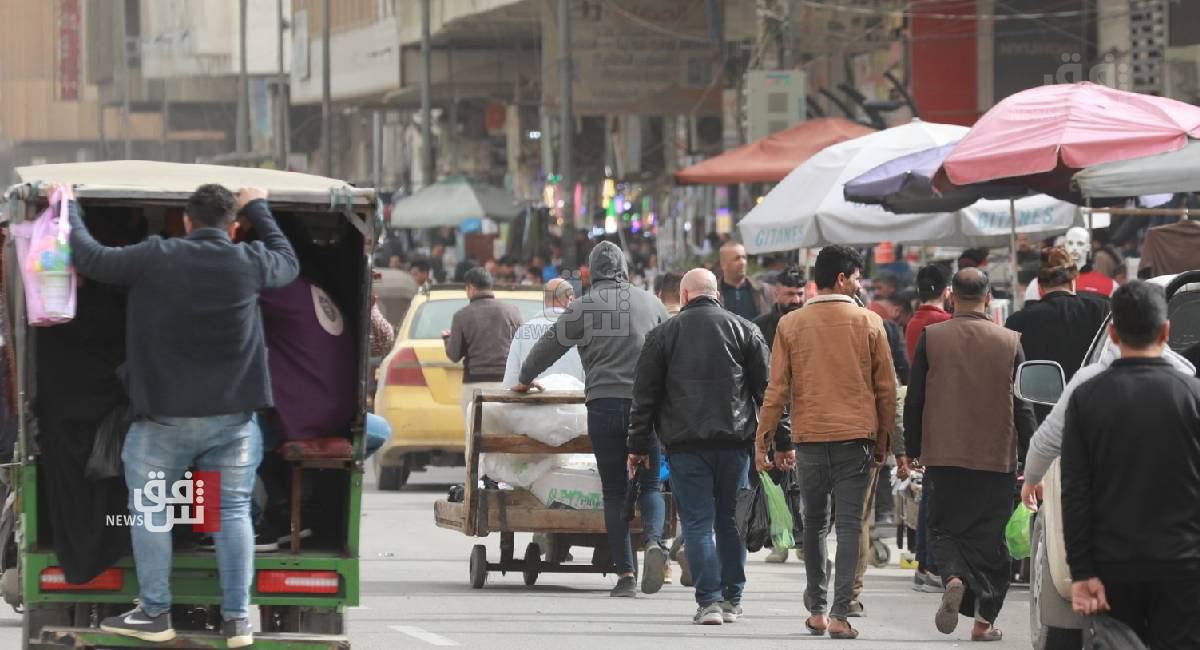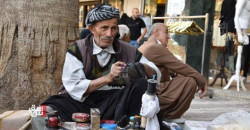Iraq Future Foundation: 18% surge in prices

Shafaq News/ Iraq Future Foundation revealed on Friday that prices of goods and services in Iraq surged by 18% from the beginning of 2020 to the start of 2024, according to data released by the Ministry of Planning's Central Statistical Organization.
In a report, the Foundation pointed out that essential commodities for Iraqi citizens experienced a more than 30% increase, with meat leading the way, rising by 36% compared to 2020. Fish prices also escalated by 38%, while dairy prices saw a 30% increase.
The report further indicated that health and transportation services surged, surpassing 25% for both services.
In contrast, the services with the least price hike were rents across Iraq (2% increase) and non-alcoholic beverages (2.9%. increase.)
The organization anticipated that inflation rates would persistently rise, particularly due to escalating costs in international supply chains and the impact of climate changes on a broad spectrum of food commodities.
Despite the inflationary surge over the four years, the report noted that these rates remain comparatively lower than those of neighboring and global countries.
The Foundation cautioned that the "lack of strategic plans to secure various commodities through local production or import could worsen the pricing issue."
Notably, as Ramadan approaches, Iraqi markets experience notable price increases every year, prompting calls for the government to fulfill promises to address this issue.
Citizens express concerns about the early shopping for Ramadan due to fear of price hikes, attributing blame to various parties, including traders, shop owners, and the government.
They demand increased support for citizens, including expanding the food basket and social welfare.
On the other hand, shop owners cite rising transportation costs as the reason for price increases while emphasizing that larger traders are more responsible for significant price hikes nearing Ramadan.
In this regard, economist Abdul Salam Hassan Hussein told Shafaq News Agency that "oversight on food pricing does not exceed 15% at most in Baghdad and the governorates, while taxes on citizens have increased from 3% to 5%."
He explained that "the government issues orders to address price hikes, but implementation is ineffective. As for traders, control over them can only be achieved by daily pricing updates broadcast in the media. This approach will combat greedy traders and control prices."
The Iraqi Ministry of Commerce has warned those manipulating food prices, conducting intensive inspection campaigns in Baghdad and governorates to monitor prices and protect food reserves.
In addition, the Ministry has accelerated its distribution schedule for food baskets, providing 42 million to citizens and an additional seven million for those under social welfare.
Minister of Labor and Social Affairs Ahmed Al-Asadi highlighted the need for six billion dinars to cover entitlements for those included in 2023.
Over 900,000 families received Q-Cards in 2023, with procedures completed for 1,207,000 families awaiting financial allocations for inclusion in aid.
In April last year, Iraq's Planning Ministry revealed a 22% poverty rate, affecting approximately 10 million people in a population of over 43 million.





